Cavalleria Rusticana – Intermezzo by P. Mascagni (piano solo arr.) with sheet music
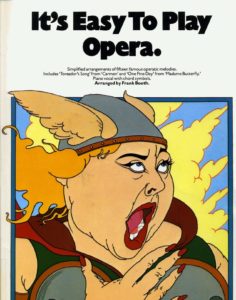
Pietro Mascagni (1863-1945) was born in Livorno, Italy, and attended the Milan Conservatory. However, he was dismissed in 1884, aged 21, for his lack of application. He then endured six years of poverty and obscurity touring as a conductor, then teaching and conducting in Cerignola, Puglia.
Here, in 1889, he heard of a competition sponsored by the music publisher Edoardo Sonzogno offering a prize for the best one-act opera written by a young Italian composer who had not yet had an opera performed. The competition had been announced the year before, and 26-year-old Mascagni heard about it only two months before the closing date.
For his story he chose Cavalleria Rusticana (‘Rustic Chivalry’), a passionate love tragedy that takes place on Easter morning by the Sicilian writer Giovanni Verga, which the author had already adapted into a play Mascagni had admired in Milan.
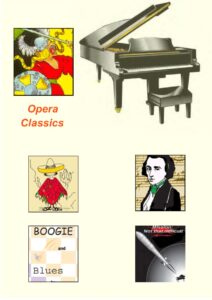
He asked his childhood friend Giovanni Targioni-Tozzetti, a poet and professor of literature, to provide a libretto. Time was of the essence so Targioni-Tozzetti and his colleague Guido Menasci immediately set to work, sending the lines to Mascagni as they went along, sometimes only a fragment on a postcard.
Mascagni recalled: ‘I received the verses a few at a time but I already had all the situation clear in my mind: I identified with the drama to such an extent that I felt it within myself in terms of music.’
It took the full two months for Pietro Mascagni to compose the score, and when the time came for him to submit it, his courage deserted him. Fearing failure, he put the music in a drawer, where it might have remained had his wife not sent it off.
It arrived at the last day for acceptance of entries. In all, 73 operas were submitted, and Cavalleria Rusticana was unanimously voted the winner by the five judges.
It opened on May 17, 1890, at the Teatro Costanzi in Rome, starring the renowned Italian tenor Roberto Stagno and soprano Gemma Bellincioni, one of the best known opera singers of the time. The house was half empty but the audience included the country’s most authoritative music critics and the Queen consort of Italy, Queen Margherita.
The work was a success from its opening notes. After Stagno’s rendition of one of the songs, the Siciliana, the audience leaped to their feet with thunderous applause. Several numbers had to be encored. Mascagni took 40 curtain calls.
The subsequent run was sold out, and many more productions followed. It opened in London at the Shaftesbury Theatre in October 1891 and had its Covent Garden premiere on 16 May 1892.
American producers fought, sometimes in the courts, to be the first to present the opera. It was premiered in Philadelphia at the Grand Opera House on September 9, 1891. In New York, two rival productions opened on the same day, October 1, 1891.
At the age of 27, the struggling composer became wealthy and famous overnight. Medals were struck in Mascagni’s honor; Livorno welcomed him home as a hero; the King of Italy bestowed on him the Order of the Crown of Italy – an honor even Verdi wasn’t given until middle age.
Mascagni wrote and produced 15 other operas but none came close to the spectacular success of Cavalleria Rusticana. At the end of his life he said: ‘It is a pity I wrote Cavalleria first for I was crowned before I became king.’
Pietro Mascagni: Cavalleria rusticana – Intermezzo
Intermezzo from Cavalleria rusticana
Mascagni had already had an operetta produced in Cremona and had been conducting opera for several seasons when he decided to enter a competition in 1888 for new one-act operas.
Please, subscribe to our Library.
If you are already a subscriber, please, check our NEW SCORES’ page every month for new sheet music. THANK YOU!
He had seen Giovanni Verga’s hit play Cavalleria rusticana (Country Chivalry) shortly after it had opened in 1884, and Mascagni now commissioned a libretto based on the play. This was completed in December 1888 and six months later Mascagni had his opera finished. One of 73 entries, it won the competition, and was first staged in Rome in May 1890.
This was perhaps the first opera to draw on the verismo literary movement, of which Verga was a major figure. Verismo opera placed an emphasis on true-to-life, regional characteristics and a quick narrative pace. Cavalleria rusticana takes place on Easter Sunday in a Sicilian village. Turiddu, a young peasant, has seduced and then abandoned Santuzza in favor of Lola, who is married to Alfio. Santuzza pleads with Turiddu to return to her; when he spurns her, she tells Alfio about Turiddu and Lola.
At this point the village square is empty, and the drama moves to the orchestra with this Intermezzo, played with the curtain up. The tune is based on a hymn heard earlier from within the village church, and its setting here suggests the both the peace of country living and the intense individual feelings of the principals.
It closes the Easter ceremony and foreshadows the coming tragedy. Turiddu and Lola come out of the church and enter his mother’s inn, where Alfio challenges him. After asking his mother to take care of Santuzza, Turiddu goes off-stage to meet Alfio, who kills him.
Best Sheet Music download from our Library.
Browse in the Library:
| Artist or Composer / Score name | Cover | List of Contents |
|---|---|---|
| The Complete Piano Player Book 5 by Kenneth Baker |
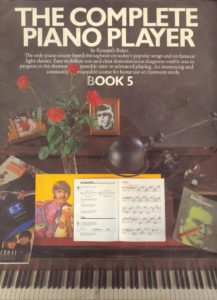 |
The Complete Piano Player Book 5 |
| The Complete Piano Player Easy Blues |
 |
The Complete Piano Player Easy Blues |
| The Complete Piano Player Style Book by Kenneth Baker |
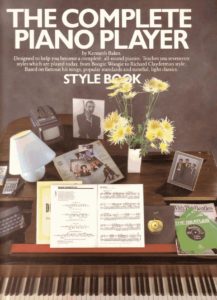 |
The Complete Piano Player Style – Book by Kenneth Baker |
| The Conformist – Main theme (Georges Delerue) | ||
| The Contradictions Of Jazz (Studies In Jazz) by Paul Rinzler (Book) |
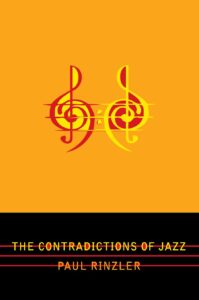 |
|
| The Corrs – Angel | ||
| The Corrs – It’s Easy To Play The Corrs |
 |
The Corrs – It’s Easy To Play The Corrs |
| The Corrs – One Night | ||
| The Corrs – Play Guitar With – MP3 audio tracks embedded in PDF Play Along with Tablature |
 |
Play Guitar With – The Corrs |
| The Corrs – Runaway | ||
| The Cottage on the Beach (Atonement OST) Dario Marianelli | ||
| The Country Music Fake Book |
 |
The Country Music Fake Book |
| The Creative Development of Johann Sebastian Bach Volume I (1695-1717) |
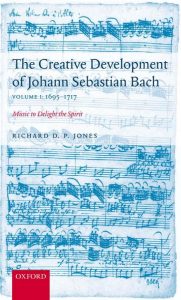 |
|
| The Creative Development of Johann Sebastian Bach, Vol II, 1717-1750 |
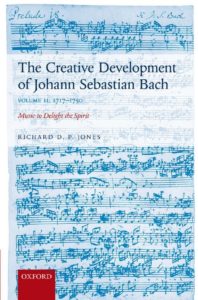 |
|
| The Cure – The Best Of [Guitar Tablature Songbook] |
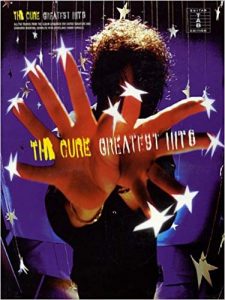 |
The Cure – The Best Of [Guitar Tablature Songbook] |
| The Cure Disintegration(Guitar & Vocal sheet music) with Tablature |
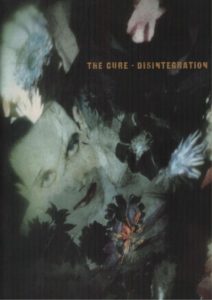 |
The Cure Disintegration Guitar |
| The Curious Case of Benjamin Button – Alexandre Desplat |
 |
The Curious Case of Benjamin Button – Alexandre Desplat |
| The Danish Girl – Fonnesbech (Alexandre Desplat) | ||
| The Danish Girl (Alexandre Desplat) | ||
| The Day of the Dolphin (Georges Delerue) | ||
| The Deer Hunter – Cavatina – Stanley Myers | ||
| The Definitive Jazz Collection Alto Saxophone With Chords |
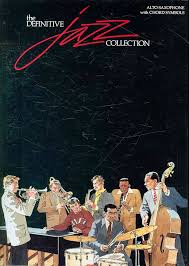 |
The Definitive Jazz Collection Alto Saxophone With Chords |
| The Disappearance Of Hatsune Miku Piano |
 |
|
| The Doobie Brothers Long Train Runnin Piano Vocal Guitar chords |
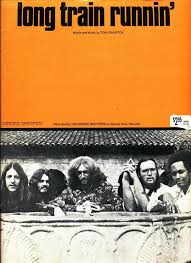 |
|
| The Doors – Hello I Love You | ||
| The Doors – Light My Fire | ||
| The Doors – Riders On The Storm | ||
| The Doors – Rock Score (band songbook) |
 |
|
| The Doors Anthology (Guitar & Tablature) |
 |
The Doors Anthology (Guitar & Tablature) |
| The Doors Guitar Tablature Anthology |
 |
The Doors Guitar Tablature Anthology |
| The Doors Songbook |
 |
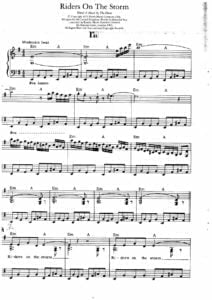 |
| The Doors The Music Of The Doors |
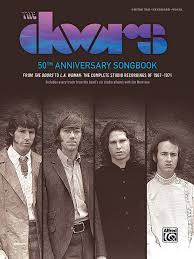 |
The Doors The Music Of The Doors |
| The dream within (Lara Fabian) | ||
| The Eagles (Guitar Backing) Jam with – (with MP3 audio tracks to play along) with Tablature |
 |
The Eagles Jam with |
| The Ecstasy of Gold (Ennio Morricone) | ||
| The Elder Scrolls III Morrowind Title Music |
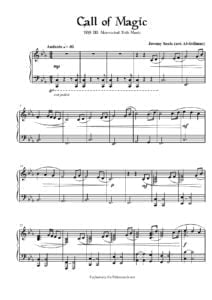 |
|
| The End Of The World – Skeeter Davis |
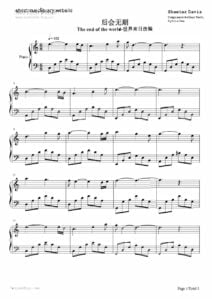 |
|
| The End Of The World – Skeeter Davis (Musescore File).mscz | ||
| The English Patient – Main Theme (Musescore File).mscz | ||
| The English Patient Piano Solo Gabriel Yared |
 |
|
| The Entertainer (Musescore File).mscz | ||
| The European Piano Method Vol. 1 Fritz Emonts |
 |
|
| The European Piano Method Vol. 2 Fritz Emonts |
 |
|
| The Evolution Of Jazz Arranging by Fred Sturm (Book) |
 |
|
| The Evolution Of The Art Of Music Cambridge Librar. (Book) |
 |
|
| The Exciters – Tell Him | ||
| The Exercise Book Guitar Grimoire Series Adam Kadmon Guitar Tablature |
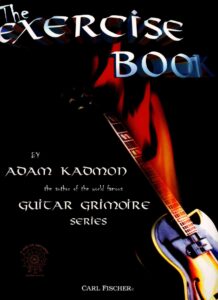 |
|
| The Exorcist Main Theme Piano Solo arr. Robert Miles and Storm Kesocascay | The Exorcist Main Theme Piano Solo arr. Robert Miles and Storm Kesocascay cover | |
| The Fantasticks – Celebration – Tom Jones & Schmidt, Harvey | The Fantasticks. Celebration – Tom Jones & Schmidt, Harvey | |
| The Fault In Our Stars Songbook Sheet Music Piano Vocal Guitar |
 |
The Fault In Our Stars Songbook Sheet Music Piano Vocal Guitar |
| The First Noel – 17th Century English Carol – Easy Piano Arr. With Lyrics (Musescore File).mscz | ||
| The First Principles Of Pianoforte Playing (By Tobias Matthay) (1905) |
 |
|
| The Fountain – Lastman – Clint Mansell | ||
| The Four Seasons – Vivaldi (Musescore File).mscz | ||
| The Four Seasons (Complete) (Musescore File).mscz | ||
| The Fray – How To Save A Life | ||
| The Fray How to Save a Life |
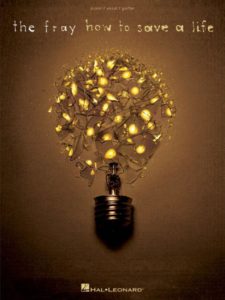 |
The Fray How to Save a Life |
| The Freddie Mercury album (Queen) Piano Vocal Guitar |
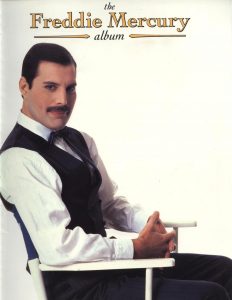 |
The Freddie Mercury -Album |
| The Free Music Analysis Anthology by Mark Feezell | Book Theory | |
| The Frim Fram sauce by Joe Ricardel and Redd Evans -Jazz Play Along |
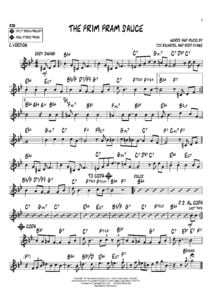 |
The Frim Fram sauceMusic: |
| The Full Monty (The Musical) – Piano Conductor Score Book by Terrence McNally Music and Lyrics by David Yazbek |
 |
The Full Monty (The Musical) – Piano Conductor Score |
| The Fusion Guitar Workbook (Deutsch German) with Tablature |
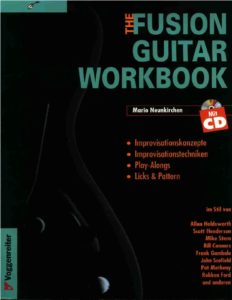 |
|
| The Genius Of Kurt Weill (1938) |
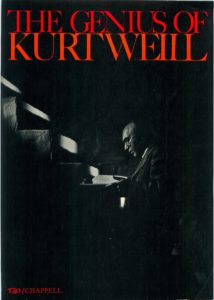 |
The Genius Of Kurt Weill (1938) |
| The Genius Of The Jazz Giants Vol 4 |
 |
The Genius Of The Jazz Giants Vol 4 |
| The Giants Of Jazz Piano |
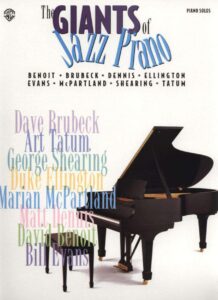 |
The Giants Of Jazz Piano |
| The Gipsy Jazz Guitar Songbook |
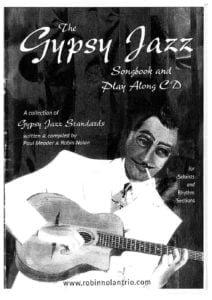 |
The Gipsy Jazz Guitar Songbook |
| The Girl From Ipanema (Antonio Carlos Jobim & Vinícius de Moraes) Jazz Piano Solo arr. sheet music |
 |
|
| The Girl From Ipanema (Guitar Tabs) (Musescore File).mscz | ||
| The Girl with the Sun in her Hair (John Barry) | ||
| The Glorious Ones – I Was Here (Piano vocal) by Lynn Ahrens and music by Stephen Flaherty | The Glorious Ones – I Was Here (Piano vocal) by Lynn Ahrens and music by Stephen Flaherty | |
| The Godfather – Love theme (Nino Rota) | ||
| The Godfather – Main Theme | ||
| The Godfather 2 – End Title (Nino Rota) | ||
| The Godfather Songbook – piano |
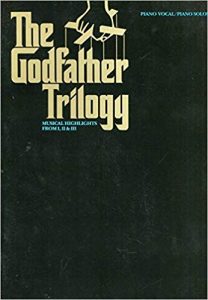 |
 |
| The Godfather Theme (Nino Rota) | ||
| The Godfather Waltz (Musescore File).mscz | ||
| The Godfather Waltz (Nino Rota) | ||
| The Golden Era Of Rock And Roll (Piano, vocal and Guitar Chords) |
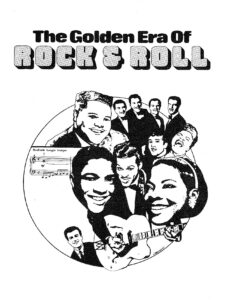 |
The Golden Era Of Rock And Roll (Piano, Vocal And Guitar Chords) |
| The Gravel Road (The Village OST) James Newton Howard | ||
| The Great American Movie Songbook (for organ & keyboard) Very easy |
 |
The Great American Movie Songbook |
| The Great Composers (By Hezekiah Butterworth) (1884) |
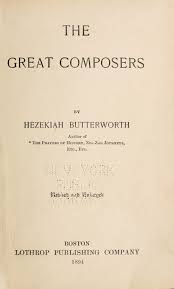 |
|
| The Greatest Love Songs Of The 21st Century |
 |
The Greatest Love Songs Of The 21st Century |
| The Greatest Love Songs Of The 60s |
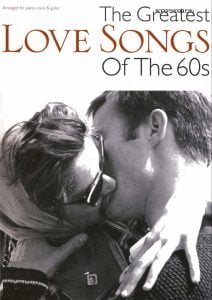 |
The Greatest Love Songs Of The 60s |
| The Greatest Love Songs Of The 70s |
 |
The Greatest Love Songs Of The 70s |
| The Greatest Love Songs Of The 80s |
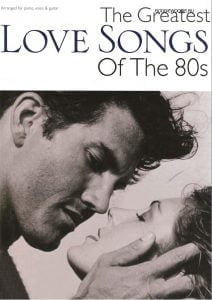 |
The Greatest Love Songs Of The 80s |
| The Greatest Love Songs Of The 90s |
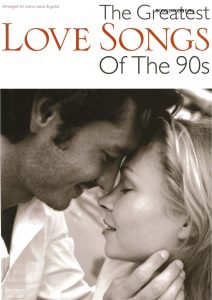 |
The Greatest Love Songs Of The 90s |
| The Greatest Showman Vocal Selections |
 |
The Greatest Showman Vocal Selections |
| The Grinch You’re A Mean One Mr. Grinch (Easy Solo Piano Arr.) By Dr. Seuss And Albert Hague | The Grinch You’re A Mean One Mr. Grinch (Easy Solo Piano Arr.) By Dr. Seuss And Albert Hague | |
| The Grinch You’re A Mean One Mr. Grinch (Jazzy Solo Piano Arr.) By Dr. Seuss And Albert Hague | The Grinch You’re A Mean One Mr. Grinch (Jazzy Solo Piano Arr.) By Dr. Seuss And Albert Hague | |
| The Grinch – You’re A Mean One Mr. Grinch (Easy Solo Piano Arr.) By Dr. Seuss And Albert Hague (Musescore File).mscz | ||
| The Grinch – You’re A Mean One Mr. Grinch (Jazzy Solo Piano Arr.) By Dr. Seuss And Albert Hague (Musescore File).mscz | ||
| The Guitar Works Of Garoto Vol 1 Guitar Scores |
 |
The Guitar Works Of Garoto Vol 1 Guitar Scores |
| The Guitarist’s Scale Book by Peter Fogl with TABs |
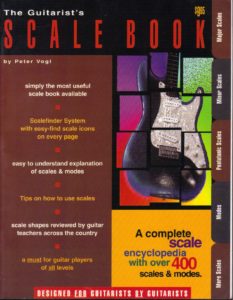 |
|
| The Hanging Tree Sheet Music (From The Hunger Games Mockingjay, Part 1) (James Newton Howard) |
 |
|
| The Harmonious Blacksmith – Gf Händel (Musescore File).mscz | ||
| The Harmony Of Bill Evans by Jack Reilly |
 |
The Harmony Of Bill Evans (Piano Score) |
| The Healing – Lady In The Water | The Healing – Lady In The Water | |
| The Hill (Marketa Irglova) | ||
| The History Of Jazz – Book by Ted Gioia (Oxford Un. Press) |
 |
|
| The history of the blues – Koopmans Andy (Book) |
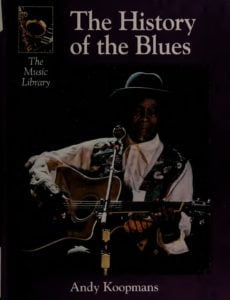 |
|
| The Hobbit – Song of the lonely mountain (Neil Finn) |
 |
The Hobbit song of the lonely mountain |
| The Horse Whisperer Sheet Music Voice Of God – Thomas Newman | ||
| The Horse Whisperer Sheet Music – Montana – Thomas Newman | The Horsewisperer – Montana – Thomas Newman | |
| The Horse Whisperer Sheet Music – The Vast Continent – Thomas Newman | The Horsewisperer – Montana – Thomas Newman | |
| The Horsewisperer – Montana – Thomas Newman | ||
| The Horsewisperer – The Vast Continent – Thomas Newman | ||
| The Horsewisperer – Voice Of God – Thomas Newman | ||
| The House of the raising Sun – Traditional (Guitarr arr. sheet music) | The House of the raising Sun – Traditional (Guitarr arr. sheet music) | |
| The Hundred Best Short Classics Book 2 Cuthbert Whitemore |
 |
The Hundred Best Short Classics Book 2 Cuthbert Whitemore |
| The Hunger Games – James Newton Howard The Train |
 |
|
| The Immigrant – Love theme (The Godfather OST) Nino Rota | ||
| The Immigrant (The Godfather OST) Nino Rota | ||
| The Imperial March Star Wars Sheet Music For Piano by John Williams |
 |
The Imperial March Star Wars Sheet Music For Piano |
| The Improvisation Of Musical Dialogue A Phenomenology Of Music (Bruce Ellis Benson) Book |
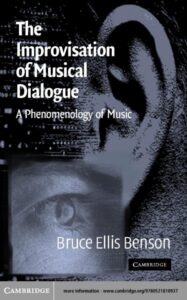 |
|
| The Interpretation Of Piano Music (By Mary Venable) (1913) |
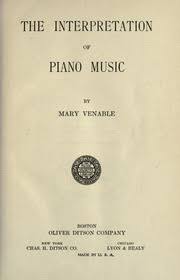 |
|
| The Jazz Piano Book Mark Levine |
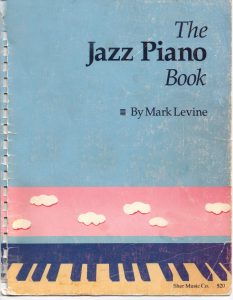 |
jazz piano book |
| The jazz style of John Coltrane – David N. Baker |
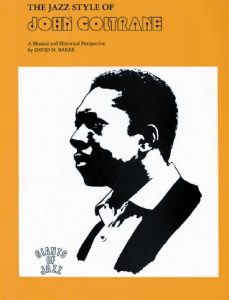 |
|
| The Jazz Tradition by Martin Williams (1993) |
 |
|
| The Joe Pass Collection with Tablature |
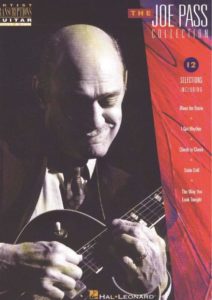 |
The Joe Pass Collection |
| The John Coltrane companion by Carl Woideck |
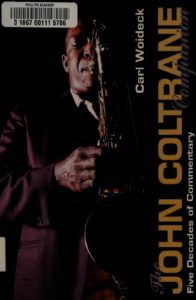 |
